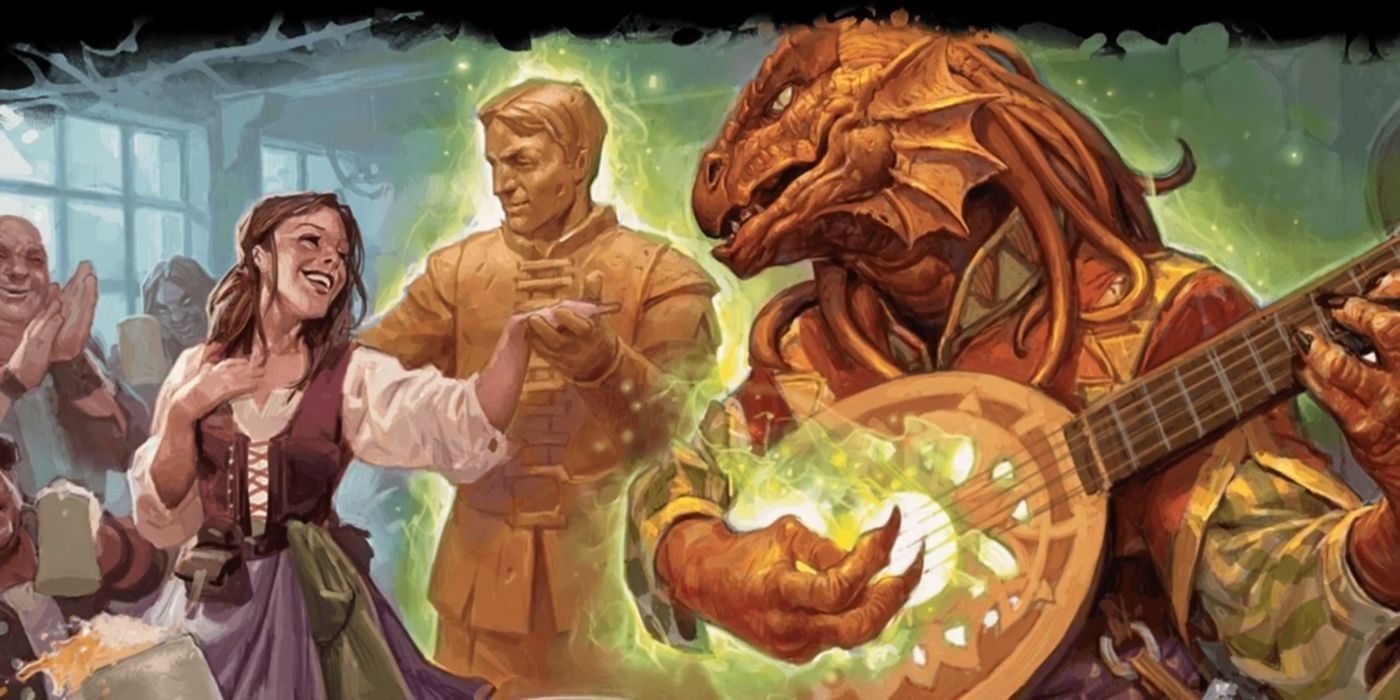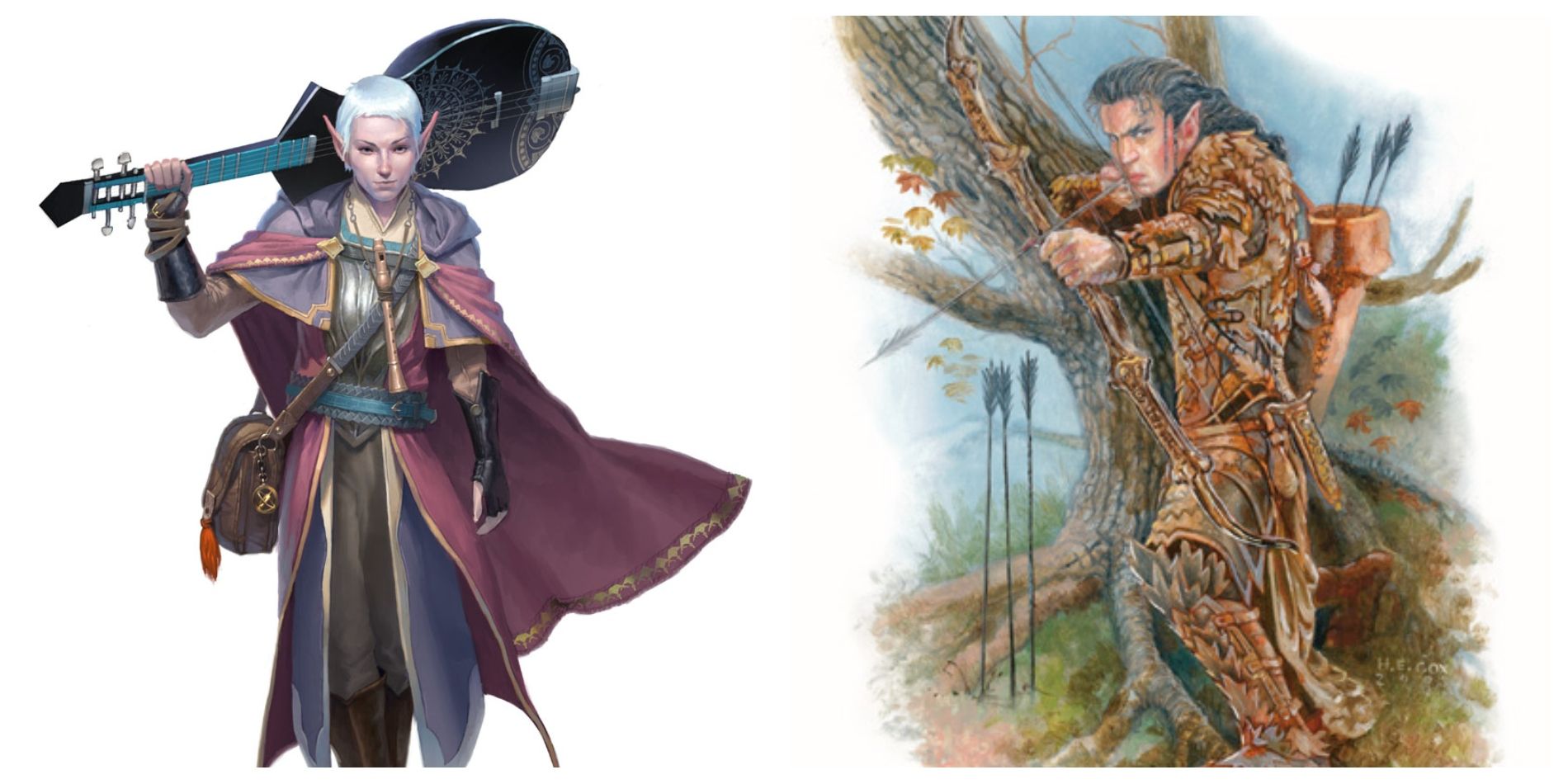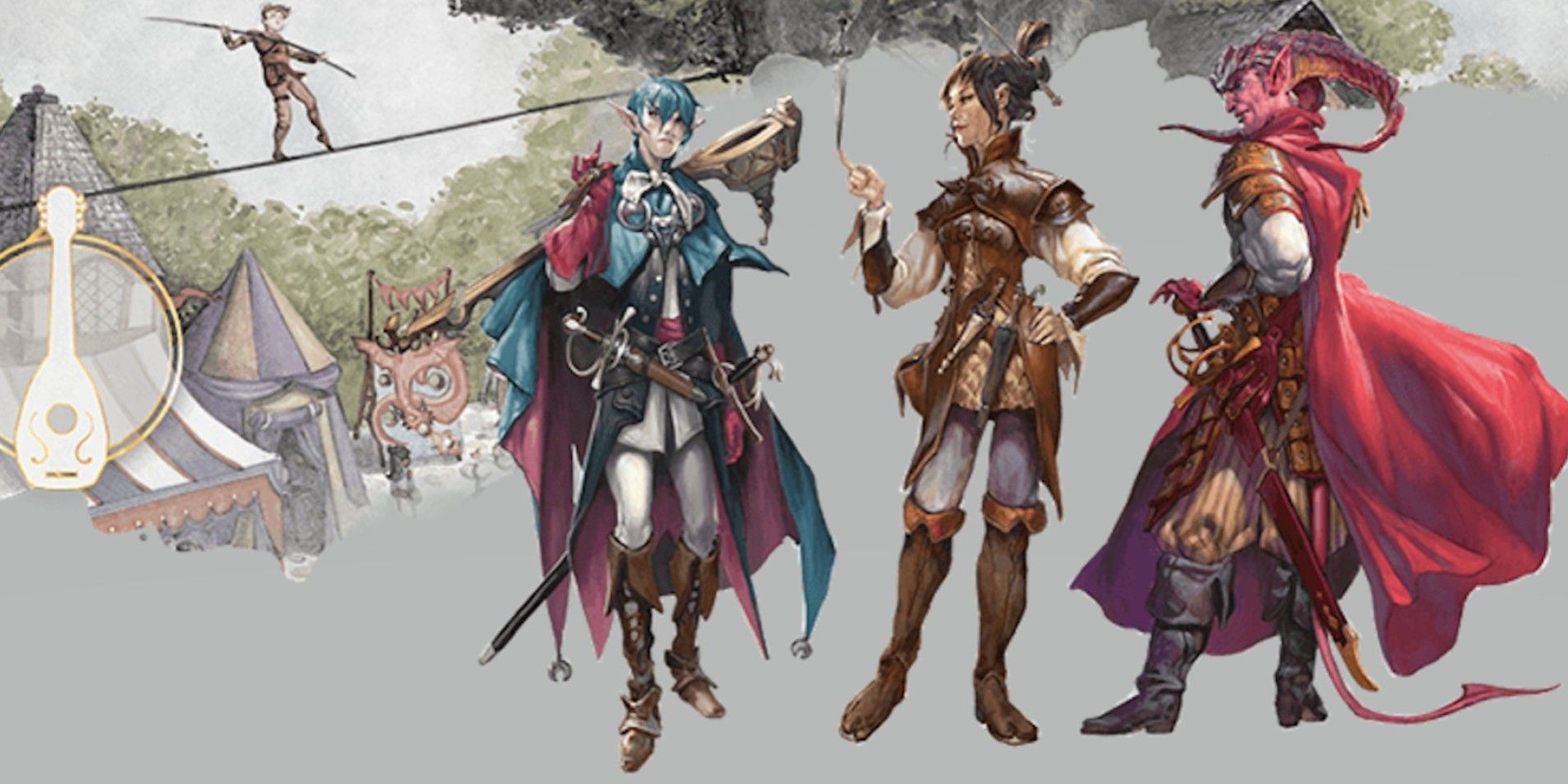Setting up backstories and builds in Dungeons & Dragons can help establish important character traits. However, it can be easy to fall into the stereotypes that have become common in each D&D Class. The Bard class is well known for characters that are often flirtatious, socially gifted, and mischievous, with mysterious backstories often lacking in detail and taking place in a number of taverns. To create a Bard with a unique flavor, players can try building backstories that directly contradict these well-known tropes, creating bards with unusual qualities.
While character traits are likely to change throughout a Dungeons & Dragons campaign as a character grows and overcomes challenges with the party, much of that growth can be influenced by the events that occurred in the D&D character's past. A Paladin whose father died in a war to defend their beliefs may be more likely to stand up violently to those who oppose their creed, while a Wizard who was persecuted for magic may always feel anxious about their abilities, or make brash choices to assert themselves in dangerous situations. D&D characters may also have big personality shifts depending on their pasts - like a Rogue bent on revenge who learns to let go of their grudge. These big changes or character flaws can create interesting conflicts, and flesh out a campaign's narrative.
Despite the wide range of classes available in Dungeons & Dragons, there are several that are particularly popular with players. These classes, like the Bard, often feel more assessable to new players, who may be nervous about learning complex pantheons of gods, dozens of rules, numerous alignments, or character roleplay that is serious or firm. Bards are often seen as flexible characters, with a wide variety of skills and abilities that new D&D players can explore without becoming overwhelmed or frustrated. However, it can be easy to lean into clichéd tropes when playing bards, and doing so can create a flat or boring experience both for the player and the party the bard is traveling in.
Dungeons & Dragons Bards Can Have Quirky & Unusual Backstories
While it might be tempting to create a bard who has always been extremely talented with music, or who can play a range of different instruments proficiently, it might also be entertaining to create a bard that has no musical ability whatsoever and employs all their abilities through story-telling and spoken word. It could be the bard is deaf, and weaves stories using illusions cast with ASL instead of spoken words. This character could tackle numerous challenges, like studying with a Wizard in D&D to expand their knowledge of illusions, or overcoming doubt cast by family or friends at their ability to perform. This character could potentially hang back in combat, buffing quietly to take enemies by surprise, or even teach their companions ASL, giving the party a non-verbal communication to be used both in combat and in narrative settings.
It might also be interesting to create an older bard who has since stopped performing in taverns or traveling the world until the party shows up and requests their help. Often a party forms by entering locations like taverns with a common goal, uniting the group for the adventure. However, in this case, the retired bard could be a school teacher, or potentially keep bees and write music out in the country, and the rest of the party would convene on the character looking for help. The bard would have plenty of stories to tell and experience to draw on, but due to prolonged absence from the field, be rusty in combat and potentially cranky. Unlike younger bards that flirt and smooth-talk their way through conflict, the grumpy older bard could simply use Vicious Mockery to make younger opponents feel small, while also bringing some entertaining snarky comments to the party's character interactions.
Dungeons & Dragons Bards Don't Have To Be Human Or Elvish
Much like how bards are often portrayed as socially cunning and flirtatious, there are also several D&D races that are common picks for those playing the class. While it might be tempting to make a beautiful Elven or Human Bard who is as attractive as they are talented, or a misunderstood Half-Elf who uses music as an escape from social prejudice, there are actually a number of other D&D races that would make excellent bards. A Dwarf that sings only the D&D equivalent of country music could be a hilarious companion to have on a journey. It could be they learned their bardic abilities while working in the family mine, and instead of a mandoline, they beat the tunes of their songs out on a drum made from a bucket.
A player could also choose to play a multiclass bard, combining two classes that normally wouldn't go together. A Barbarian could potentially learn the bard skill by singing battle songs to empower himself and his party members, or by taking up a part-time job at the local tavern between quests, only to learn skills from another Bard performing there. It could be the Barbarian always enjoyed singing but never had the opportunity to hone the skill while upholding the family expectations of combat and physical power. A Barbarian playing the violin to buff their party would not only be a unique Dungeons & Dragons roleplay opportunity, but it would contradict the tropes and clichés of two separate classes.
To create an additional challenge, a player could choose to build a Bard with an unusual D&D alignment. While most bards are somewhere on the Neutral Good or Chaotic Good spectrum, either working for their own devices or trying to aide their party, playing a Chaotic Evil Bard could greatly change how one benefits or damages a party. Instead of buffing their teammates, the Chaotic Evil Bard could cast the spell on the opponent and then use their high Charisma to make it appear as an accident, or manipulate party members into making bad decisions by either lying or deceiving their closest companions. This trickster could put a fresh twist on a Dungeons & Dragons bard, and potentially create a unique outcome for the campaign as a whole



